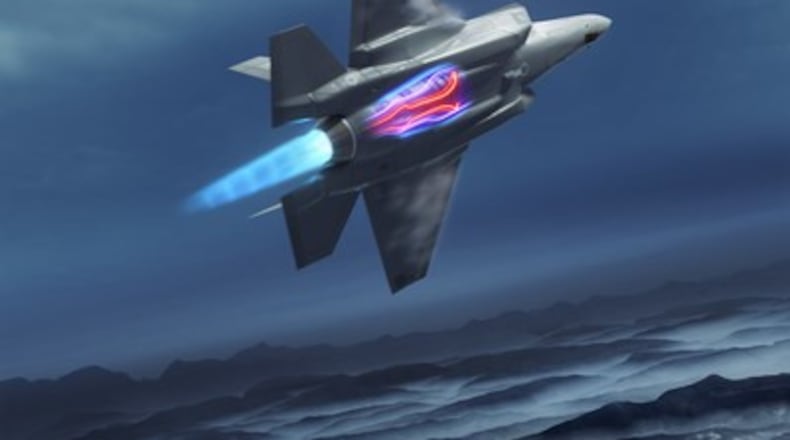“We urge DOD to fund adaptive propulsion engineering and manufacturing development in the FY24 budget submission and deliver adaptive technology to the services as quickly as possible,” says an Oct. 7 letter from 48 representatives and senators to Secretary of Defense Lloyd Austin. “If we do not continue to pursue advanced propulsion systems for our fighter aircraft, we risk opening the door for U.S. adversaries to overtake our advantages in fielded engine technology.”
Among those who signed the letter are Sens. Sherrod Brown and Rob Portman, and U.S. Rep. Mike Turner, R-Dayton, a member of the House Armed Services Committee. Rep. Warren Davidson, R-Troy, also signed.
By relying on a third stream of air, the engines are said to enhance thrust in combat situations while preserving fuel efficiency in other conditions.
There are only two adaptive engines in existence today — the GE Aerospace XA100 and Pratt & Whitney’s XA101.
The Air Force and GE concluded testing on the second XA100 engine at the Air Force’s Arnold Engineering Development Complex in August, marking the final major contract milestone for the Adaptive Engine Transition Program, which began in 2016.
GE maintains that its engine is designed to fit both the F-35A and F-35C without structural modifications to either airframe, enabling better range, acceleration and cooling to accommodate next-generation mission systems.
The Pratt & Whitney engine is seen by some as more of an incremental upgrade to an existing powerplant. The F-35 currently uses Pratt & Whitney’s F135 engine.
Congress late last year called for new engines in current and future F-35s, starting in 2027. Pentagon officials have leaned toward a 2030 timeframe.
“Balancing current needs to maintain readiness with investments in next-generation capabilities that ensure our warfighters are equipped to fight and win the conflicts of tomorrow is of utmost importance,” the letter states. “It’s not enough that DOD keeps up with our adversaries. We must make strategic funding decisions that bring us the technological leaps that will enable us to maintain our competitive edge.”
It adds: “We must continue to develop and field advanced propulsion systems which will enable our servicemembers to fly into the theater of operation, complete their mission and return home safely.”
The soon-to-be renamed GE Aerospace — also known as GE Aviation — is a big employer in Southwestern Ohio. Pre-pandemic, the company had about 1,500 employees working in four Dayton-area facilities, sites which saw a $1 billion total annual investment. About 9,000 Ohioans work for the company in total.
The engine program is managed by the Propulsion Directorate at the Air Force Life Cycle Management Center, at Wright-Patterson Air Force Base.
The directorate has a $3.4 billion portfolio.
About the Author

